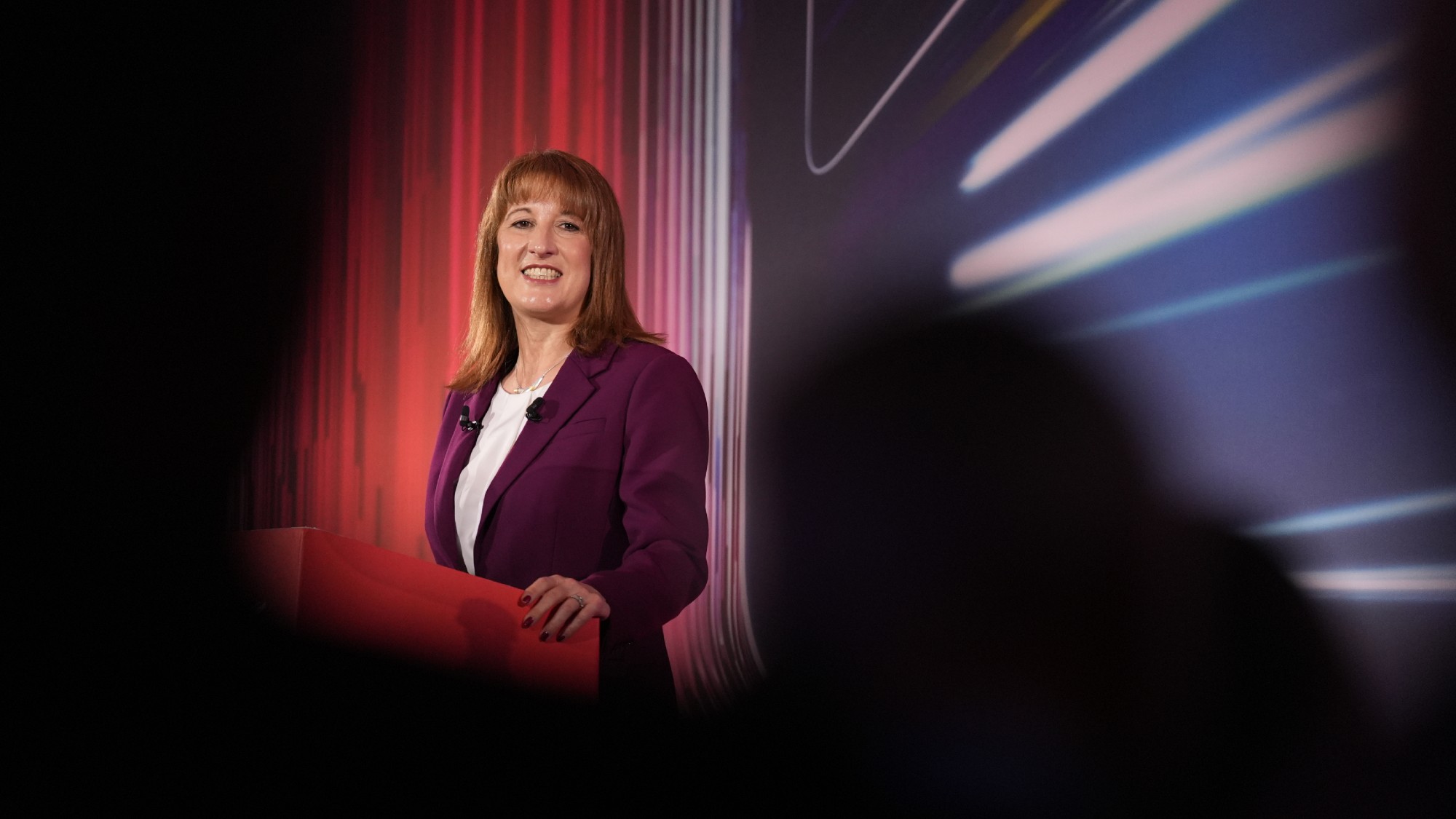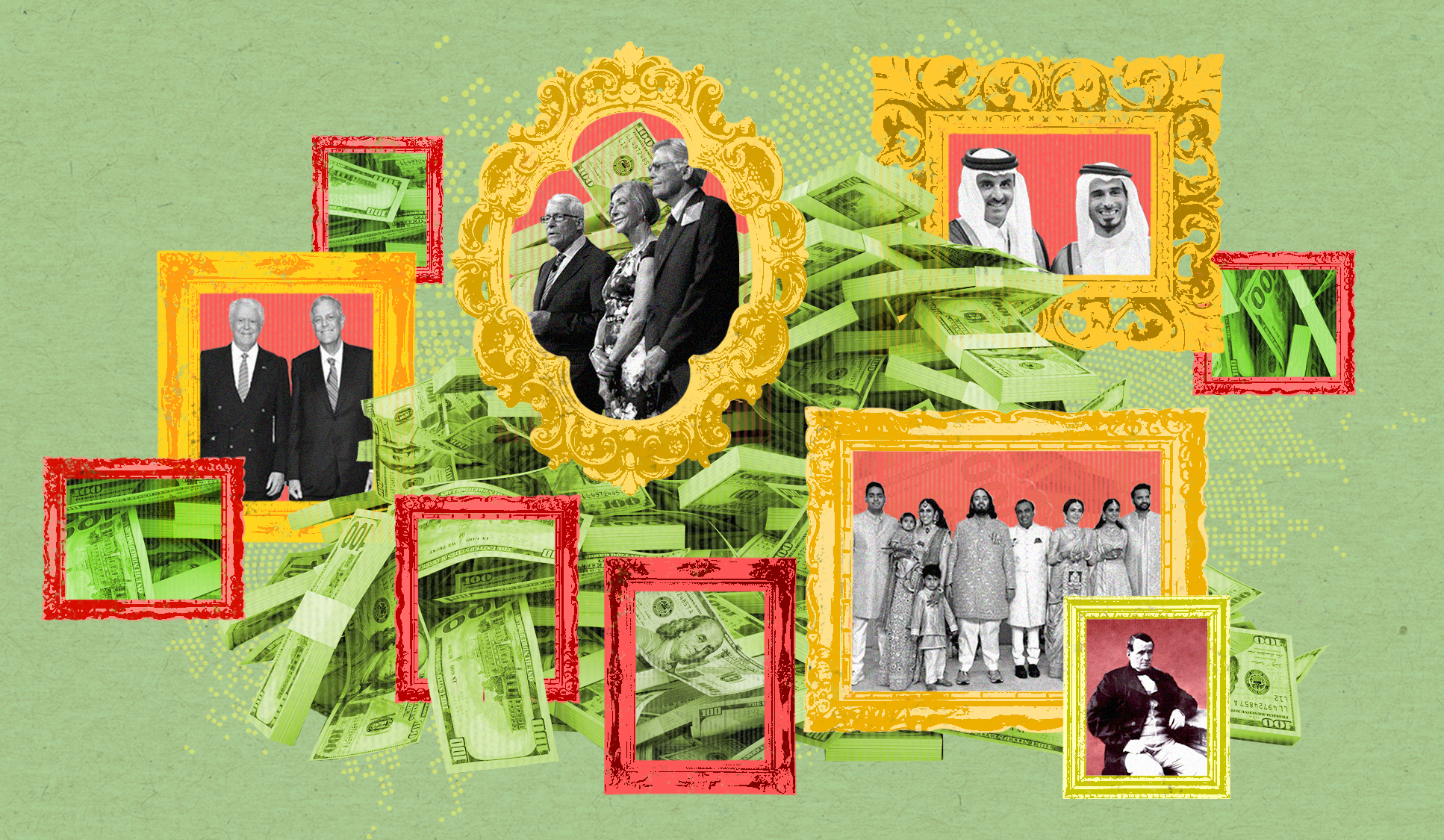Limitarianism: could we put a cap on extreme wealth?
How much is too much, asks Dutch economist in new book

A free daily email with the biggest news stories of the day – and the best features from TheWeek.com
You are now subscribed
Your newsletter sign-up was successful
How much personal wealth should one person have? Should anyone have more than £10 million in wealth? Or is £1 million too much?
Those are some of the questions put forward by Dutch economist and philosopher Ingrid Robeyns in her new book "Limitarianism: The Case Against Extreme Wealth". In it, she calls for governments to cap the amount of wealth any one individual can own.
Robeyns argues that there is a strong moral case for capping the wealth of individuals. Not only do extreme wealth gaps further entrench inequality but huge riches are often acquired by questionable means, whether that be through exploitative business practices or outright criminality. Even well-intentioned philanthropists can't make up for the damage that the excessive wealth of just a few thousand people can do to the rest of society, Robeyns said.
The Week
Escape your echo chamber. Get the facts behind the news, plus analysis from multiple perspectives.

Sign up for The Week's Free Newsletters
From our morning news briefing to a weekly Good News Newsletter, get the best of The Week delivered directly to your inbox.
From our morning news briefing to a weekly Good News Newsletter, get the best of The Week delivered directly to your inbox.
Developed countries with adequate social safety nets, such as her native Netherlands, should impose a limit of €10 million (£8.5 million) on individual personal wealth, according to Robeyns. Individuals should also apply a voluntary moral code on wealth. She said an "ethical limit [on wealth] will be around 1 million pounds, dollars or euros per person."
'Far from utopian'
"Thinkers have been making the case for this 'limitarianism' and the capping of business rewards for centuries", albeit in slightly different forms, said Stewart Lansley, visiting fellow at the University of Bristol, in a review of Robeyns' book for the London School of Economics.
Classical Greek philosopher Plato, for example, argued that the richest should own no more property than four times that of the poorest. Similarly, J.P. Morgan, the famous American financier, believed that executives should earn no more than 20 times the pay of the lowest-paid worker.
Despite many critics dismissing the concept as "either unfeasible or undesirable", recent history suggests that the idea is "far from utopian", said Lansley. Limits on wealth operated "pretty effectively among nations – including the UK and the US – in the post-war decades and became an important instrument in the move towards greater equality".
A free daily email with the biggest news stories of the day – and the best features from TheWeek.com
"Limitarianism, like veganism, isn't about to become mainstream any time soon," said The Times' financial editor Patrick Hosking, "but some of the economic trends of the past few decades that have encouraged the limitarian ideology also explain growing unease about inequality in much of the world, including Britain."
In some cases, it is clear that "the very forces that have lifted the wealth of some are condemning the financial chances of others". For example, in the UK, "the shortage of new homes that has pushed up house prices for so long is the very thing that is propelling rents higher and keeping tenants too poor to accumulate a mortgage deposit", he said.
'What would we strive for?'
Any limit on personal wealth would be "difficult to enforce without significant changes to our tax and governance frameworks", said Christine Emba in The Atlantic. Critics argue that such a policy is impossible to put into practice, and that a cap on wealth would stifle innovation.
It throws up other troubling questions too: "Can governments use the money as efficiently as we might want? Do we really trust our fellow citizens to make good decisions?" The idea of a wealth cap would also contradict deeply held cultural beliefs in countries such as the US and the UK: "If extreme wealth is no longer aspirational, what else should we strive for? Will we lose all ambition if the prospect of material gain goes away?"
If limitarian ideas are to gain traction, then much of the impetus will have to come from millionaires and billionaires themselves, Robeyns told The Observer. And in a small way, this has already started to happen – 250 millionaires and billionaires signed an open letter to world leaders at this year's World Economic Forum in Davos demanding a wealth tax.
"I may be unduly optimistic about this," Robeyns told the paper, "but I think sometimes these people have this moment in their life which triggers those thoughts."
Sorcha Bradley is a writer at The Week and a regular on “The Week Unwrapped” podcast. She worked at The Week magazine for a year and a half before taking up her current role with the digital team, where she mostly covers UK current affairs and politics. Before joining The Week, Sorcha worked at slow-news start-up Tortoise Media. She has also written for Sky News, The Sunday Times, the London Evening Standard and Grazia magazine, among other publications. She has a master’s in newspaper journalism from City, University of London, where she specialised in political journalism.
-
 What is the endgame in the DHS shutdown?
What is the endgame in the DHS shutdown?Today’s Big Question Democrats want to rein in ICE’s immigration crackdown
-
 ‘Poor time management isn’t just an inconvenience’
‘Poor time management isn’t just an inconvenience’Instant Opinion Opinion, comment and editorials of the day
-
 Bad Bunny’s Super Bowl: A win for unity
Bad Bunny’s Super Bowl: A win for unityFeature The global superstar's halftime show was a celebration for everyone to enjoy
-
 Is the US in a hiring recession?
Is the US in a hiring recession?Today's Big Question The economy is growing. Job openings are not.
-
 How prediction markets have spread to politics
How prediction markets have spread to politicsThe explainer Everything’s a gamble
-
 Is the UK headed for recession?
Is the UK headed for recession?Today’s Big Question Sluggish growth and rising unemployment are ringing alarm bells for economists
-
 Why has America’s economy gone K-shaped?
Why has America’s economy gone K-shaped?Today's Big Question The rich are doing well. Everybody else is scrimping.
-
 Autumn Budget: will Rachel Reeves raid the rich?
Autumn Budget: will Rachel Reeves raid the rich?Talking Point To fill Britain’s financial black hole, the Chancellor will have to consider everything – except an income tax rise
-
 Is the US in recession?
Is the US in recession?Today's Big Question ‘Unofficial signals’ are flashing red
-
 New York court tosses Trump's $500M fraud fine
New York court tosses Trump's $500M fraud fineSpeed Read A divided appeals court threw out a hefty penalty against President Trump for fraudulently inflating his wealth
-
 The world's 10 richest families
The world's 10 richest familiesIn Depth Luxury retailers, hereditary monarchs and the heirs to the Walmart fortune dominate the list of the world's wealthiest clans